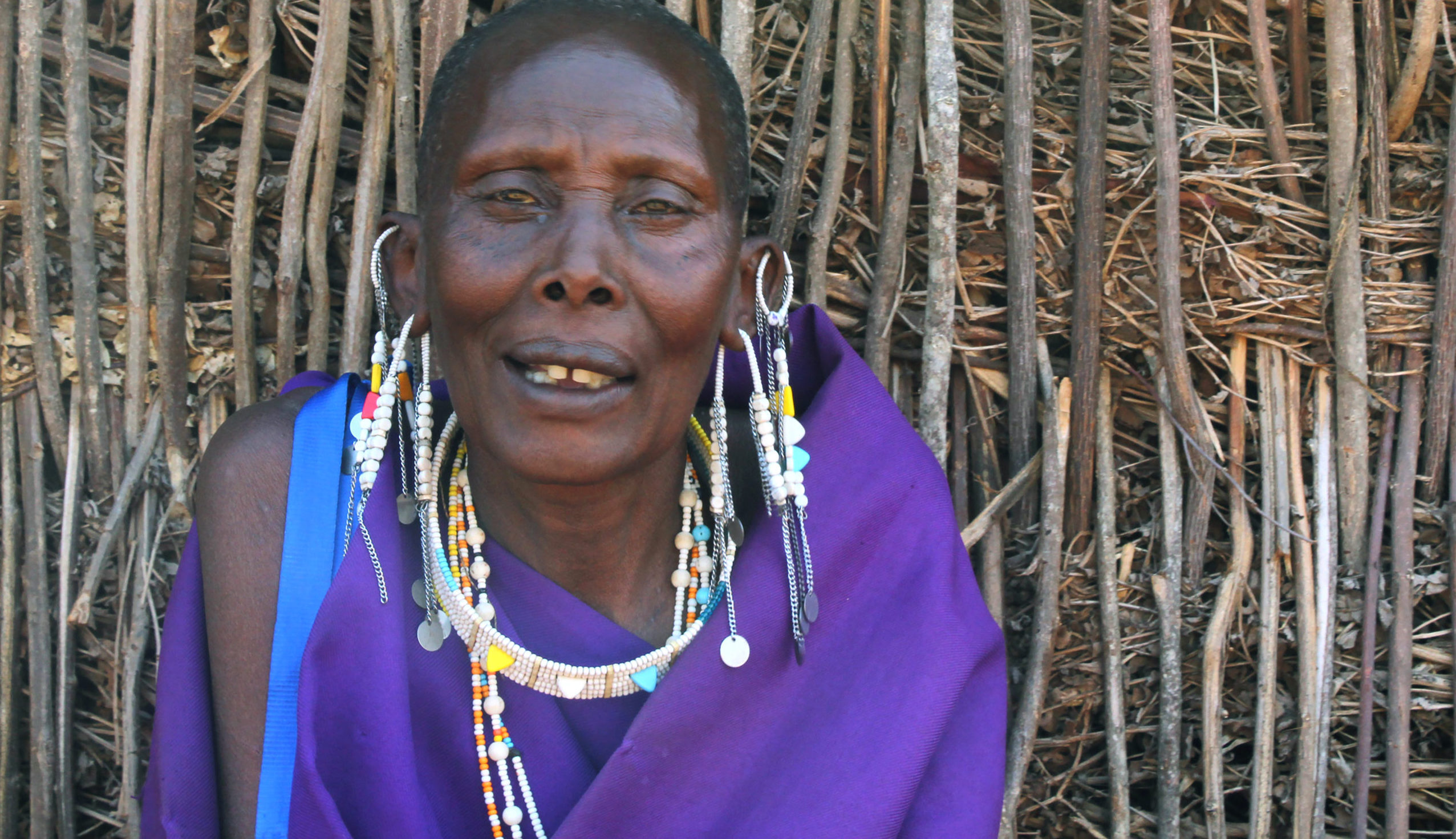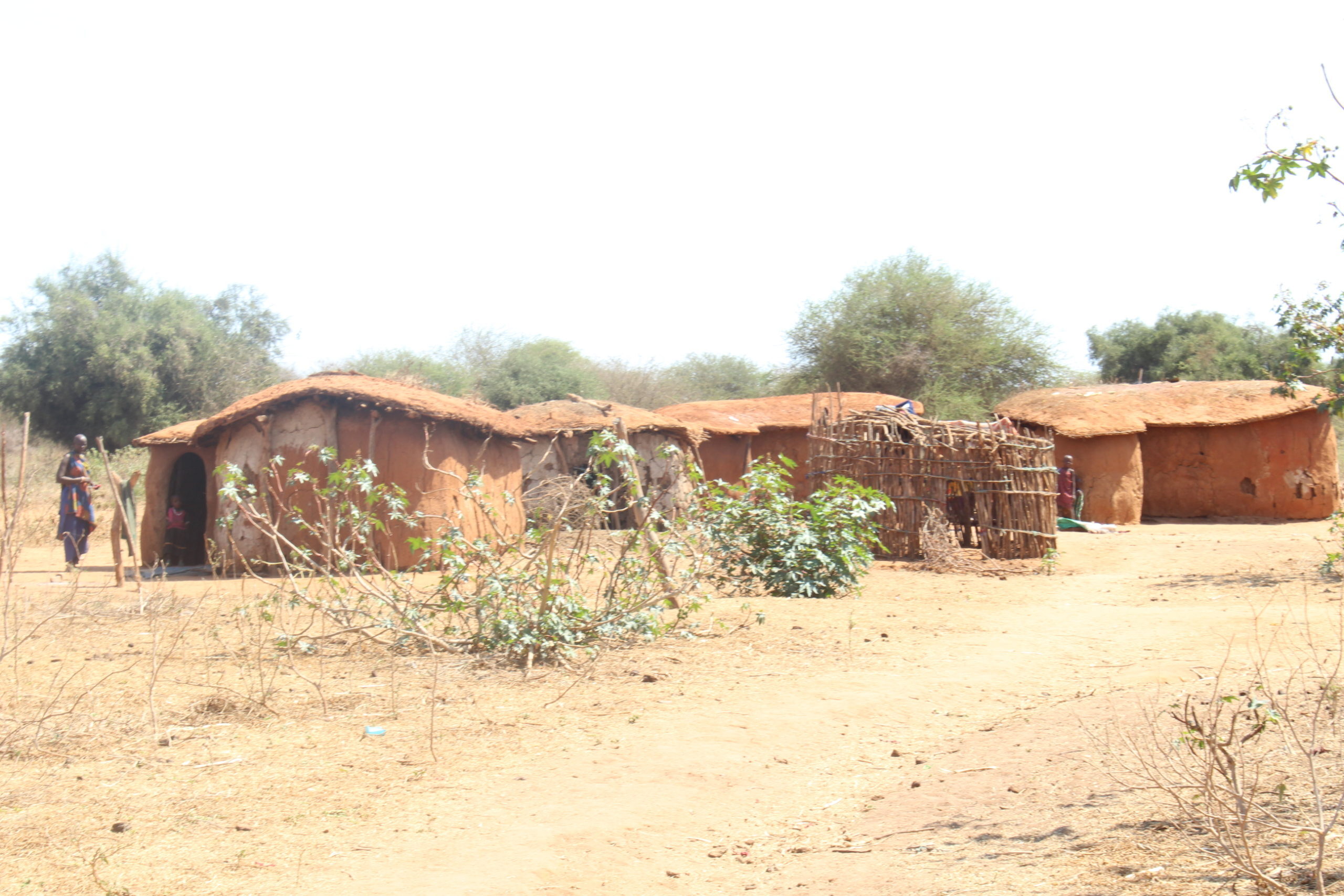 On a plain in Tanzania’s northern region, situated between Lake Manyara and the Great Rift Valley, Yasinta sits and surveys the mountainous vista from the doorway of her boma, a traditional Maasai home, constructed of branches, mud, and dung. The middle-aged mother lives with her husband, children, and other relatives in a compound of seven bomas that sit together behind a fence of thorny bushes.
On a plain in Tanzania’s northern region, situated between Lake Manyara and the Great Rift Valley, Yasinta sits and surveys the mountainous vista from the doorway of her boma, a traditional Maasai home, constructed of branches, mud, and dung. The middle-aged mother lives with her husband, children, and other relatives in a compound of seven bomas that sit together behind a fence of thorny bushes.
In the distance, Yasinta spots visitors approaching in all-terrain vehicles. A team of community health workers from the Elizabeth Glaser Pediatric AIDS Foundation (EGPAF) have come to visit. The families gather to greet the team with a traditional Maasai dance, establishing goodwill and welcome.
Yasinta’s family recognizes Esther, one of the healthcare workers, and enthusiastically calls out, “Esther! Our hero! God used you to save the life of our relative, Yasinta.”

The rest of the health team is eager to know more, so they ask Yasinta to tell her story. Fighting through powerful emotion, Yasinta asks, “Where do I even begin?”
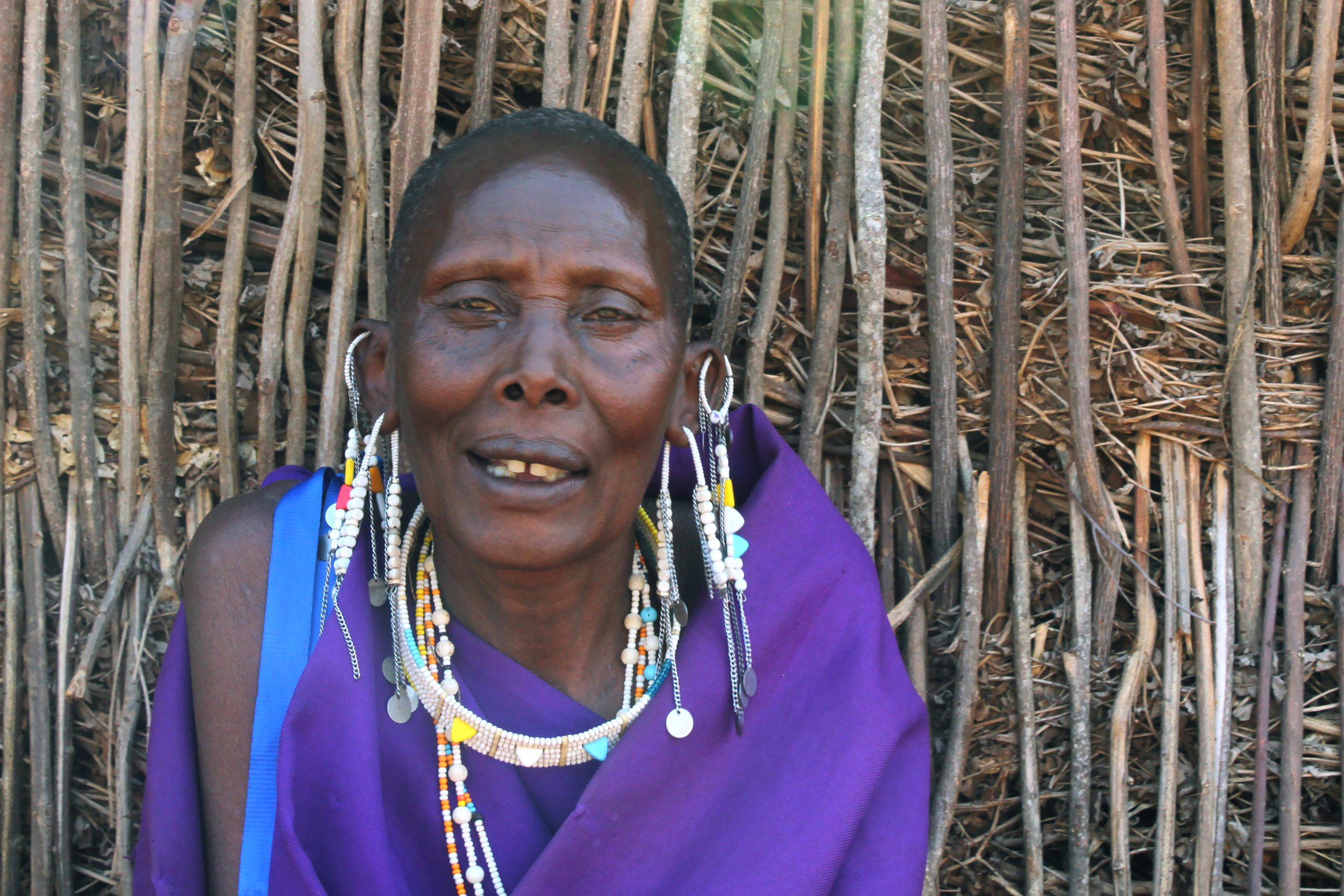 “The moment when I was sick, was the hardest in my life,” says Yasinta. “After being sick for so long and after using all the traditional herbs, my family took me to a health center away from this village [to the Kijungu dispensary, 42 kilometers away]. I was told that I had typhoid and was given medication—which I took—but my condition deteriorated as I continued to suffer from vomiting and diarrhea. My family did whatever they could to save my life. When they saw their efforts were not bearing any fruit, they lost hope and decided to make peace with the fact that I was going to die.
“The moment when I was sick, was the hardest in my life,” says Yasinta. “After being sick for so long and after using all the traditional herbs, my family took me to a health center away from this village [to the Kijungu dispensary, 42 kilometers away]. I was told that I had typhoid and was given medication—which I took—but my condition deteriorated as I continued to suffer from vomiting and diarrhea. My family did whatever they could to save my life. When they saw their efforts were not bearing any fruit, they lost hope and decided to make peace with the fact that I was going to die.
“Then, one day, we received a visitor—a woman on a motorbike who seemed to have traveled very far. Her face was covered with dust. The woman introduced herself as Esther. She was charming and seemed to understand our culture. I was severely ill in bed. When Esther asked to meet me, I was puzzled. How could she have known me? I had never seen her before.
“Esther asked if I was a traditional birth attendant, and I was even more confused because that is the work that I had been doing before I became sick—helping pregnant women deliver babies. How could this woman know so much about me? As Esther helped me out of bed, she explained that she’d been referred to me from the Kijungu Dispensary where she works.”
Esther, a community health worker, now takes over, explaining that during that visit, she talked to Yasinta and her the family about HIV. She told them about an approach for discovering people living with HIV by testing patients thought to be HIV-positive—and then counseling and testing the patient’s entire household. Esther said that based on Yasinta’s file, she suspected that Yasinta was living with HIV.
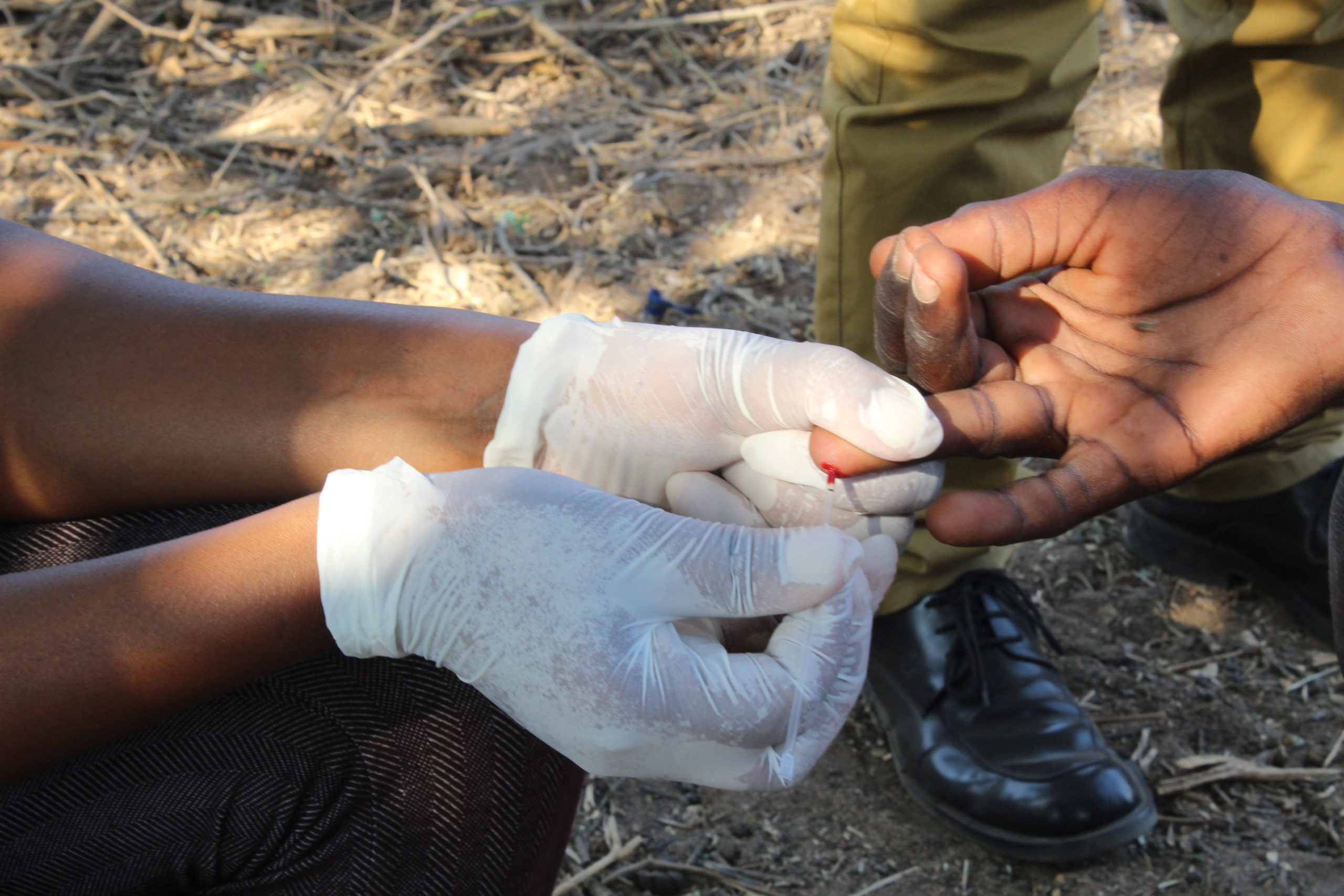
During that visit, Yasinta agreed to be tested and was found to be HIV-positive. She was immediately enrolled on treatment and provided with antiretroviral (ARV) drugs. As the days went on, Yasinta started to feel better and stronger. Her health improved drastically, and she is now an inspiration to the community. Esther, together with the other community health workers at the Kijungu Dispensary, continue to follow up on Yasinta and her household.
Keen to protect others from going through the near-fatal experience she went through, Yasinta now reaches out to other Maasai community members. She has opened the door for the community to be reached by HIV and TB care services. For instance, the visiting health team is referred to a woman who has been coughing rigorously, and she is counseled about tuberculosis (TB) and invited to be tested.
The Maasai population in the Manyara region is migratory and are well- known for its distinct culture, traditions, and lifestyle. Some customs—such as the application of traditional herbs for healing and the use of birth attendants to deliver children—can hinder health-seeking behavior for serious medical conditions such as HIV and TB.
Yasinta is just one of 130 people living with HIV who have been identified between April and June of 2020 through an outreach program in the Kiteto district called Boma to Boma. The innovative approach is implemented by EGPAF in partnership with EngenderHealth; the Ministry of Health, Community Development, Gender, Elderly and Children (MOHCDGEC); and the President’s Office, Regional Administration and Local Governments (PORALG).
Yasinta now reaches out to other Maasai community members, opening the door for the community to be reached by HIV and TB care services.
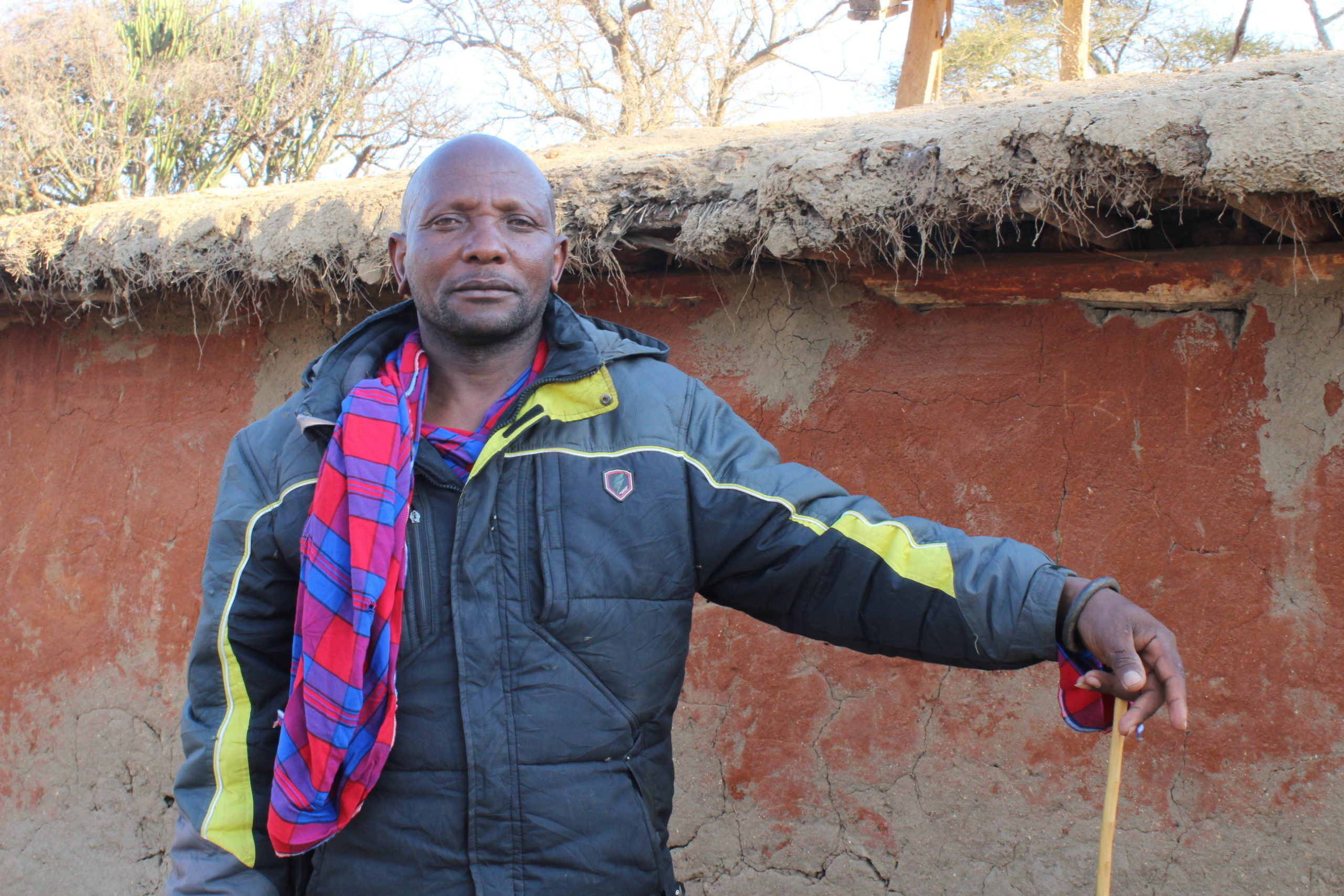
Boma to Boma reaches out to Maasai communities and households through HIV index-testing and TB contact tracing. The project works very closely with the Laigwanan—the most respected local leaders—to deliver HIV, TB, and gender and reproductive health messages to the community during the implementation of the Boma to Boma approach.
Yasinta’s family is grateful to EGPAF, through the USAID Boresha Afya project, for reaching out to their household and are helping to bridge the gap between their proud culture and the health of their community.
“This project gave me a second chance,” says Yasinta.

